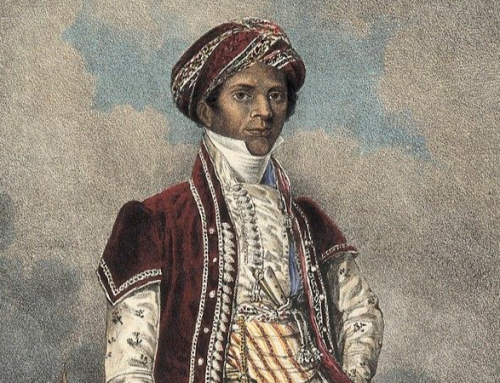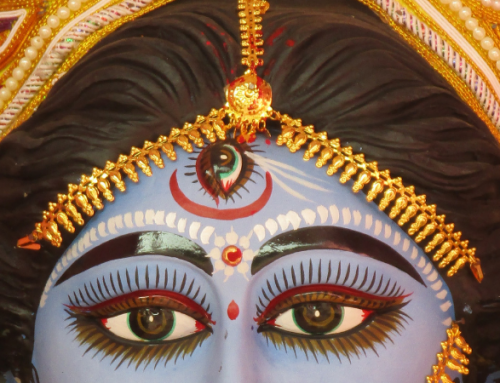Bhakti: Cultivating the Bliss Body
Next month in Berkeley I’ll be teaching a course on the subject of bhakti, which has led me to do some thinking about bhakti as a spiritual path.
In the modern world most everyone uses the word bhakti solely to indicate devotion to a deity, when this is a relatively recent restriction of its wider significance. The Sanskrit word bhakti is derived from the root bhaj-, which means “to divide, distribute, share, partake, participate, enjoy”. From bhaj- emerge the words bhakta, meaning “distributed, assigned, allotted, worshipped; food, a meal; a share, portion” and bhakti, meaning “distribution, partition, separation; a share; a row or line; belonging to; an attribute, predisposition; devotion, homage, trust, faith, worship, love”.
It was the Bhagavad Gita that elevated bhakti into a marga, a spiritual path, literally a “seeking and searching” for reality; the Bhagavata Purana (better known as the Srimad Bhagavata) that elaborated extensively on the concept; and the Saiva Nayanars and the Vaisnava Alvars of Tamil Nadu that ignited the fire of bhakti that spread into a conflagration that burns throughout India even today, and that redefined bhakta as “one who practices bhakti”, irrespective of sex, caste or socio-economic status.
No single English term can adequately translate the concept of bhakti, which includes devotion but means much more. Bhakti is deep affection for and attachment to one’s ishta, the ishta being that aspect of the divine that is dearest to one’s heart. One can have as an ishta the atma (Supreme Self), ishvara (the Formless Supreme), a devata (personal god or goddess worshipped as the Supreme) or one’s guru.
Ritual worship when present may be part of one’s bhakti, but only a part of a larger constellation of activities that call for participation in the reality that one aspires to. Many scholars in fact now use “participation” as a one-word translation for bhakti, instead of the more common “devotion”.
Though bhakti is for some undiscriminating emotion, bhakti is for the serious bhakta committed intertwining of one’s being with that of one’s ideal. In bhakti there is division, separation between the Lover and the Beloved, and it is that separation that powers the process. Bhaktas crave not to become the Supreme but by their sadhanas to share a portion of that Supreme, just as a genuine lover of mangoes wants not to become a mango but to enjoy sweet mango juice. Bhakti is rasatmaka, it has juice for its nature, it is composed of nectar, and when you are full of bhakti you cannot sit quietly, you have to dance and sing as the juice courses through you in whatever way it can embody itself within you. Bhakti happens when that overflowing emotion (rasa) progressively channels one along a track that leads ever toward the istha.
Vimalananda always maintained that “bhakti is shakti”, and that bhakti is the safest path for spiritual development because no genuine bhakta is ever tempted to let that shakti feed the ego. Instead, that shakti feeds the fire of longing for the Beloved until all else is incinerated and only the Beloved remains.
Scott Blossom joins me for our bhakti satsanga on April 19-21 in Berkeley, and there are still some spots left for those who can join us to invite bhakti to us via kirtan and yoga practice.
May the Lord bless us always with bhakti!


